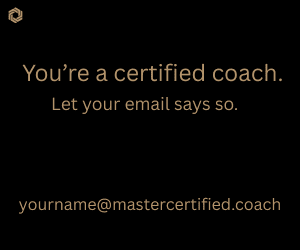The term “impostor syndrome” was coined by clinical psychologists Pauline Clance and Suzanne Imes in 1978. In recent times, Amy Cuddy’s 2017 TED talk on feeling like a fraud, catapulted the concept of impostor syndrome into public awareness and into our everyday language.
If you experience impostor syndrome, you may fear that you are going to be “found out,” discount your successes by putting them down to luck, think anyone could do what you do, negate your accomplishments, feel like you don’t have the right to be doing what you are doing or have a sense that you don’t belong where you are.
Self-doubt and low self-belief contribute to feeling like an impostor and most coaching interventions for impostor syndrome focus on building confidence and self-belief. However, the impact of environmental factors in triggering impostor syndrome should not be underestimated. Moving out of a comfort zone into a new environment can give rise to impostor syndrome, even if you haven’t had it before and even if you have generally high self-belief and confidence.
Having trained thousands of coaches in the past 20 years, I am puzzled as to why so many newly trained coaches suffer from impostor syndrome. I have concluded that the environmental impact of entering a new profession (often relatively quickly) is significant. Becoming a coach means learning a new skillset, studying for qualifications and becoming a business owner, all in one go. The impact and challenge of this should not be underestimated. Is it any wonder it can take time for you to adjust to, and adopt, a completely new professional identity?
When you train as a coach you may have had a lengthy career in another sector and have built a sense of identity and credibility over the years. You may have had a previous occupation that other people recognized and understood. You didn’t find yourself having to regularly answer the question, “What is it that you do, exactly?”
If you are newly self-employed, you can find yourself without the structure, resources and sense of community that an organization provides. Although you may have longed to see the end of meetings when you left a company, you can feel lonely when they are not happening. There are no regular appraisals, no line managers and there is no one, other than your clients, to give you feedback.
As a new coach, you may now find yourself surrounded by coaches who are more qualified and experienced than you. They may let you know how high their fees are or how busy they are, and you may start to compare yourself unfavorably to them.
Feeling like an impostor as a new coach can lead to:
- Underselling your services and being overly “grateful” to your clients, “rescuing” your clients, doing most of the work in the coaching session and demonstrating loose boundaries around duration of coaching sessions or fees
- Putting off getting clients and instead collecting more and more qualifications until you feel you are “good enough” (often without having identified what “good enough” looks like for you)
So, how do we overcome the environmental factors which can give rise to impostor syndrome?
- Value all you are bringing to the profession from your previous work and life experiences. Becoming a coach is probably the culmination of years of professional and personal experience and did not just happen during your coach training program! Remember that everything you are and everything you did before led you to train as a coach
- Ask for testimonials and referrals from clients and organizations at the end of coaching assignments. If they are forthcoming and positive, decide to believe them
- Commit to continuing professional development (CPD) and Coaching Supervision. They both provide a disproportionately positive return on investment and help you maintain continuous learning and rigorous self-reflection. They provide a framework and space to enable you to gain necessary perspective on your work and to address the aspects of your own behaviors that might get in the way of your effectiveness as a coach
Finally, if you have even a pinch of impostor syndrome, give yourself permission to be on a learning curve. It is probably better to question your competence as a coach than to overestimate it. The opposite of impostor syndrome is the belief that you are much more competent than you are, leading to a refusal to acknowledge your limitations. So, instead, accept where you are and embrace the benefits of being a novice coach. You are probably full of enthusiasm and curiosity. You are likely to be in a state of not-knowing about your clients, which is a prerequisite to good coaching.
Repeat to yourself daily the wonderful words of Julie Starr, leading coach and author: “I am both enough and still capable of more.”
Disclaimer
The views and opinions expressed in guest posts featured on this blog are those of the author and do not necessarily reflect the opinions and views of the International Coach Federation (ICF). The publication of a guest post on the ICF Blog does not equate to an ICF endorsement or guarantee of the products or services provided by the author.
Additionally, for the purpose of full disclosure and as a disclaimer of liability, this content was possibly generated using the assistance of an AI program. Its contents, either in whole or in part, have been reviewed and revised by a human. Nevertheless, the reader/user is responsible for verifying the information presented and should not rely upon this article or post as providing any specific professional advice or counsel. Its contents are provided “as is,” and ICF makes no representations or warranties as to its accuracy or completeness and to the fullest extent permitted by applicable law specifically disclaims any and all liability for any damages or injuries resulting from use of or reliance thereupon.
Authors
Post Type
Blog
Audience Type
Coach Educators, Experienced Coaches, External Coaches, ICF Chapter Leaders, Internal Coaches, New Coaches, Professional Coaches, Team and Group Coaches
Topic
Coaching Toolbox, Discover - Your Coaching Career
Related Posts
Grace Under Fire: Building Stress Resilience for Coaches and High Achievers
There’s a unique kind of pressure that lives at the intersection of…
Beyond the Session: The Coach-Adjacent Skills That Matter
Unlike many coaches, I didn’t come to this from another career. Coaching…
The Role of Cultural Humility in Coaching
Remember the last potluck you attended? Everyone brought a dish, a food representing their…






